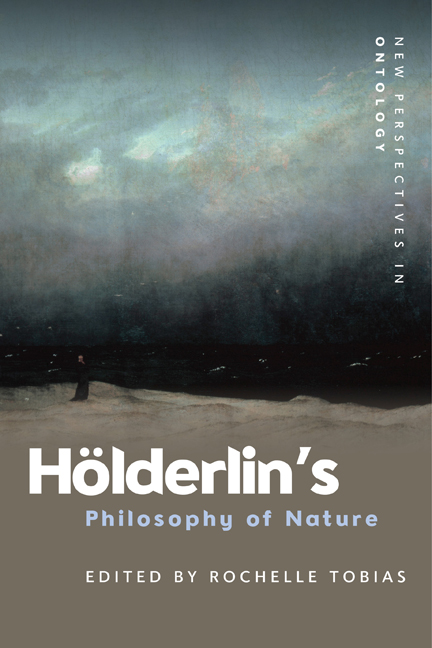2 - Nature and Poetic Consciousness from Hölderlin to Rilke
Published online by Cambridge University Press: 08 October 2020
Summary
Introduction
While the poets Hölderlin and Rilke each invite voluminous exegesis and are often evoked together in a common thematic context – not least because of the interest Heidegger took in both poets and, in his wake, that of Blanchot and Gadamer – they have invited little direct comparison in literary scholarship. Rilke, coming upon Hölderlin's work via Norbert von Hellingrath around the beginning of a decade of relative poetic silence (ending in February 1922), may be thought to have drawn some sense of the importance of the poet's role, and some images and linguistic mannerisms, but little by way of philosophical or poetological influence from his romantic predecessor. In contrast to this view, it has been argued that Rilke's relation to Hölderlin can be considered his ‘bid to situate himself in a distinctly German poetic lineage’, yet Hölderlin's direct influence has been demonstrated in respect to but a few minor poems. There has been little, if any, scholarly indication that Rilke's distinct poetic accomplishments, or even his central preoccupations, bear distinctly Hölderlinian features. Turning then to two undeniably singular bodies of work, we would conclude that they remain, after all, very different poets. While this is no doubt the case, I will here argue that the poetics of Hölderlin and Rilke are in fact deeply connected by a common notion – that of distinctly poetic consciousness – and by a common problem – the relation of poetic consciousness to nature. Reading these poets together may illuminate the possibilities for a poetic contribution to revising our relation to the natural world.
It is worth reviewing the differences between these poets before setting out to demonstrate their common problematic. Hölderlin's poetry, in the context of Romanticism, is steeped in Enlightenment philosophy and contends with idealism, Pietism, and revolution; Rilke aims to make sense of modernist visual art, in the cultural shadow of Baudelaire and Nietzsche, and largely avoids national themes. Both poets engage the novel form to express the bereftness of the modern age. But the protagonist of Hölderlin's novel, Hyperion, for all his contemplation, is centrifugally directed, attempting to find wholeness in love, friendship and political action – recounting these entirely in letters to others.
- Type
- Chapter
- Information
- Hölderlin's Philosophy of Nature , pp. 23 - 43Publisher: Edinburgh University PressPrint publication year: 2020

